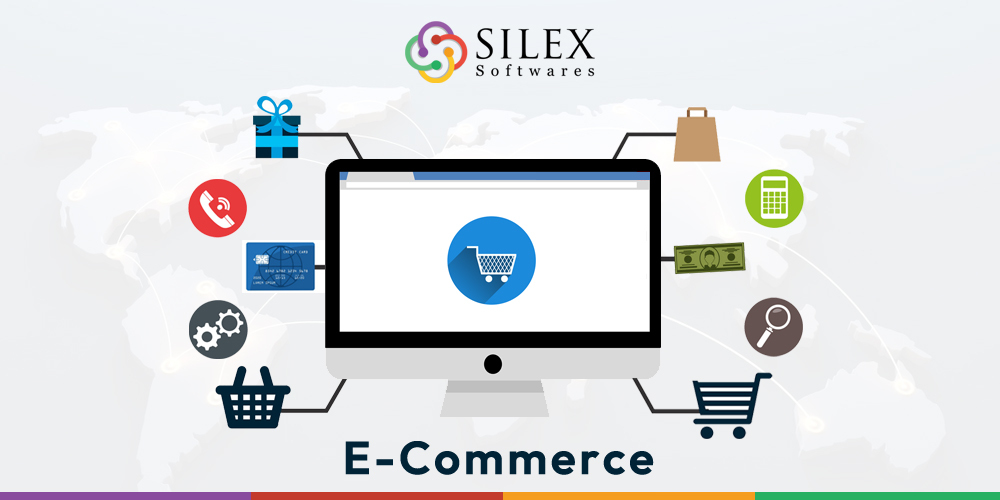E-commerce is an online form of commerce that enables businesses to sell goods and services to customers over the internet. It is a convenient and cost-effective way for businesses to reach out to their target audience and increase sales. ECommerce businesses can range from small independent stores to large multinational corporations. They offer a wide range of products and services, from physical goods to digital downloads. Consumers can purchase items from any location worldwide, making it easier to find what they need without leaving home.
“E-commerce, also called electronic commerce, is a business model in which business transactions occur over the world wide web or over an electronic medium.
Ecommerce or E-commerce?
The accurate way to write this term is e-commerce with a hyphen. Search engines usually ignore hyphens and other symbols when indexing pages for search results; whenever you’re writing or researching, it’s best to make sure that you use the original terminology, in this case, “e-commerce”.
Types of E-commerce
There are four main types of e-commerce, they are:
Business to Consumer (B2C)
B2C e-commerce is the most popular e-commerce model. Business to Consumer (B2C) refers to the relationship between a business and its consumers. B2C companies sell products or services directly to consumers rather than other industries. Businesses and their consumers conduct direct business transactions over electronic means in business-to-consumer transactions. Among the four models of e-commerce, it is also considered the retail model.
Example of Business to Consumer The top e-commerce companies that practice B2C e-commerce include Facebook, Amazon, Walmart, Google, and Alibaba.
Business-to-Business (B2B)
Business-to-Business (B2B) is a transaction between companies where one company provides services, products, or technologies to another. It is a growing sector in the modern economy and has become an integral part of many businesses. As technology continues to evolve and become more accessible, B2B transactions are becoming increasingly important in today’s economy.
Examples of Business-to-Business e-commerce model can be seen in small businesses buying goods from the Amazon marketplace to resell to consumers.
Consumer-to-Business (C2B)
Consumer-to-Business (C2B) is an emerging business model redefining how businesses interact with consumers. This model is different from the traditional Business-to-Consumer (B2C) model, as it reverses the flow of goods and services from a business to a consumer. C2B also provides a platform for businesses to access a larger pool of potential customers and create new revenue streams. With C2B, companies can increase efficiency, reduce costs, and better meet customer demands.
Examples of the C2B model are large e-commerce websites or sellers who pay or otherwise reward consumers for reviewing their products or when they share a review on their social media.
Consumer-to-Consumer (C2C)
Consumer-to-Consumer (C2C) is a business model that enables consumers to interact and transact directly. It has become increasingly popular due to the rise of e-commerce platforms, social media networks, and mobile apps. C2C allows consumers to buy and sell goods or services without going through mediators or retailers.
Examples of consumer-to-consumer e-commerce models are online auctions on eBay or business transactions on the Facebook marketplace.
Advantages & Benefits of Ecommerce You Need to Know
In today’s digital age, e-commerce has become an integral part of the modern business landscape. It offers a wide range of benefits to both businesses and customers alike. From cost savings to convenience, e-commerce has revolutionized how we shop and do business.
Let’s now take a look at some of the advantages of e-commerce.
Ease And Convenience
With increased workload and home commitments, shopping for beloved products from preferred retailers can be pretty challenging, primarily if they are in distant locations. Shopping online has become the norm for many due to its user-friendly interface and time efficiency. Customers can buy whatever they need without leaving their homes with just a few clicks. Customers can order products or services 24 hours a day, wherever they are. That is why E-commerce is dominating today’s retail world.
Global Marketplace
E-commerce allows sellers to reach global markets. By doing so, they remove the barriers of place (geography). It is now possible to meet buyers and sellers in the virtual world without location limitations.
Wide Range Of Products And Services
The e-commerce industry has a wide range of products and services made available by businesses and consumers. It improves the chance of acquiring a good or service quickly through an online search.
During the last few years, e-commerce has changed the lives of thousands of individuals and has continued to do so with many benefits, including convenience, ease, time-saving, and many more. It is crucial to design an E-commerce website that makes the visitor’s online experience pleasant and makes them want to return and purchase the product/service again.
Silex Software is a group of professionals who excel in E-commerce web designing and development, social media marketing, and SEO services. We are committed to offering quality and never compromising on the loyalty we share with our customers

